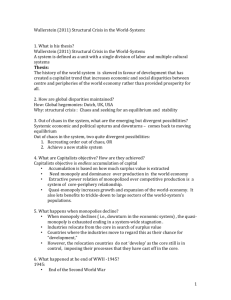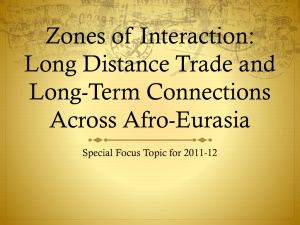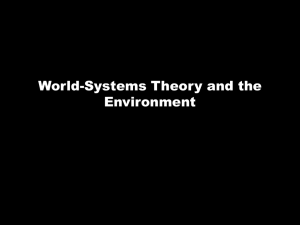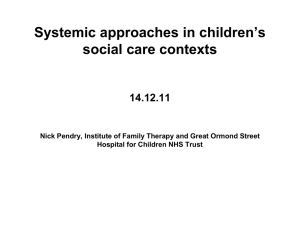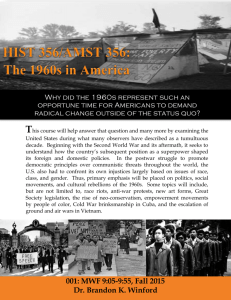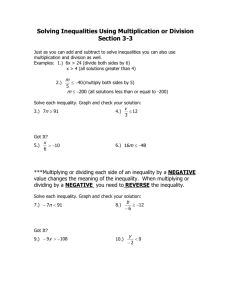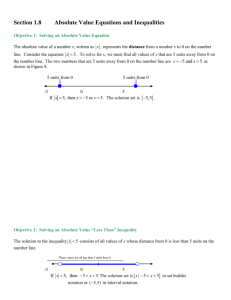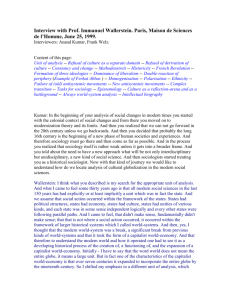CFP-PEWS 2016 - TerpConnect
advertisement
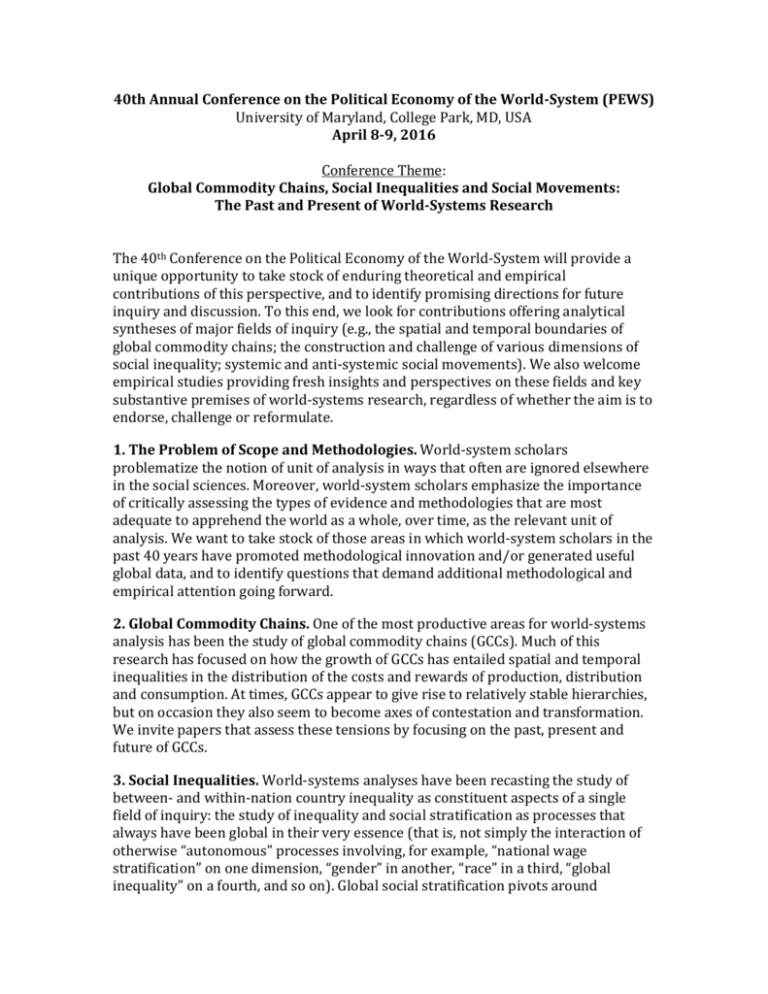
40th Annual Conference on the Political Economy of the World-System (PEWS) University of Maryland, College Park, MD, USA April 8-9, 2016 Conference Theme: Global Commodity Chains, Social Inequalities and Social Movements: The Past and Present of World-Systems Research The 40th Conference on the Political Economy of the World-System will provide a unique opportunity to take stock of enduring theoretical and empirical contributions of this perspective, and to identify promising directions for future inquiry and discussion. To this end, we look for contributions offering analytical syntheses of major fields of inquiry (e.g., the spatial and temporal boundaries of global commodity chains; the construction and challenge of various dimensions of social inequality; systemic and anti-systemic social movements). We also welcome empirical studies providing fresh insights and perspectives on these fields and key substantive premises of world-systems research, regardless of whether the aim is to endorse, challenge or reformulate. 1. The Problem of Scope and Methodologies. World-system scholars problematize the notion of unit of analysis in ways that often are ignored elsewhere in the social sciences. Moreover, world-system scholars emphasize the importance of critically assessing the types of evidence and methodologies that are most adequate to apprehend the world as a whole, over time, as the relevant unit of analysis. We want to take stock of those areas in which world-system scholars in the past 40 years have promoted methodological innovation and/or generated useful global data, and to identify questions that demand additional methodological and empirical attention going forward. 2. Global Commodity Chains. One of the most productive areas for world-systems analysis has been the study of global commodity chains (GCCs). Much of this research has focused on how the growth of GCCs has entailed spatial and temporal inequalities in the distribution of the costs and rewards of production, distribution and consumption. At times, GCCs appear to give rise to relatively stable hierarchies, but on occasion they also seem to become axes of contestation and transformation. We invite papers that assess these tensions by focusing on the past, present and future of GCCs. 3. Social Inequalities. World-systems analyses have been recasting the study of between- and within-nation country inequality as constituent aspects of a single field of inquiry: the study of inequality and social stratification as processes that always have been global in their very essence (that is, not simply the interaction of otherwise “autonomous” processes involving, for example, “national wage stratification” on one dimension, “gender” in another, “race” in a third, “global inequality” on a fourth, and so on). Global social stratification pivots around institutional arrangements that render distributional outcomes as simultaneously “national,” “gendered,” “racialized” and “global” processes. We invite papers focusing on the processes that produce, reproduce, challenge and/or undermine the various forms of inequality that have been part and parcel of the modern worldsystem. 4. Social Movements: Systemic and Anti-systemic. Social movements lead us to periodically reevaluate the boundaries between the “systemic” and “anti-systemic.” In this regard, we are interested in critically exploring the ways in which the enduring legacy of Karl Polanyi’s concept of the “double movement” unintentionally may have served to bias world-systems research towards reading all forms of resistance to markets as “anti-systemic,” and movements relying on market mechanisms as “systemic.” In fact, a world-historical approach calls for greater sensitivity to the manifold ways in which such boundaries change over time and space. We welcome all paper proposals that reassess the meaning of “systemic” and “anti-systemic” in past and present social movements. Submissions and Support: Paper proposals (around 500 words) should be sent by September 30, 2015 to [PEWS-2016@umd.edu]. Please include institutional affiliations and contact information for all authors. We will respond to all submissions by October 16, 2015. Conference participants presenting papers will be provided lodging and meals during their stay. Selected papers will be considered for publication in an edited book. Please direct your questions to [PEWS-2016@umd.edu]. A Facebook page [facebook.com/pews2016] will offer important updates, schedules, and an opportunity to communicate with other conference participants. Conference organization: Scott Albrecht and Patricio Korzeniewicz, Department of Sociology, University of Maryland, College Park, MD, 20782, USA.
